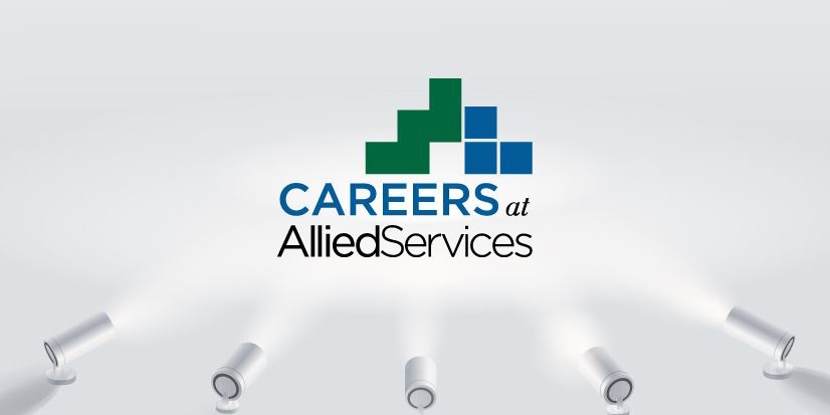Your Stroke Team: The People Who Will Shape Your Recovery
- Category: News, Stroke Recovery
- Posted On:
- Written By: Allied Services Integrated Health

Thanks to increased awareness of the symptoms of a stroke and treatment advances, about 83% of Americans who suffer a stroke will survive. Recovery starts in the hours and days following a stroke and will be a lifelong journey. Building a strong team of medical professionals – a stroke team – can help to positively shape what life after a stroke looks like. This team of experts will help a stroke survivor to regain strength, mobility, and rebuild the skills needed to live as independently and fully as possible. Some of the stroke experts that form a stroke recovery team include:
Physician: your physician has an important role to play in addressing your current medical needs and in working with you to prevent a second stroke. This might involve education for you and your spouse or carer, prescribing different medications, and guidance on building your stroke recovery team. Your physician or rehabilitation nurse will also provide information on what to expect during the next steps in recovery, whether that is an inpatient rehabilitation stay, home health, or outpatient rehabilitation therapy.
Physical Therapist: depending on the area of the brain affected by a stroke, you may experience weakness in your arms or legs. Typically, the weakness will occur on one side of the body, which is known as hemiparesis or hemiplegia. A stroke can also affect coordination, making movement more difficult. Weakness or impaired coordination can affect balance which increases your fall risk. As movement specialists, physical therapists work to address these deficits and improve your strength, balance, coordination, and overall mobility to promote safety and independence over time.
Occupational Therapist: occupational therapists are trained to assess how an injury has affected a patient's ability to complete activities of daily living (ADLs) such as dressing, brushing your teeth, and so on. In addition to working on these physical deficits, occupational therapists provide tools or tips to help stroke survivors perform certain activities easier while compensating for whatever function they may have lost. In settings where both physical and occupational therapists work, physical therapists will typically address lower extremity function while occupational therapists will address upper extremity function.
Speech-Language Pathologists: stroke affects communication in a variety of ways. It can damage the parts of the brain responsible for producing and understanding words. Stroke may also damage the muscles necessary for forming words. Those same muscles are necessary for swallowing. Speech-language pathologists are trained to support stroke survivors in regaining speech and swallowing function, and in devising strategies that aid with memory, understanding, and comprehension.
Case Manager: at an acute level, case managers will work to ensure patients receive the right level of care after a stroke. They will work with physical and occupational therapists to determine when it is safe for a patient to return home and provide support if a patient requires assistive devices, such as a walker or a bedside commode. Before discharge, case managers coordinate with the other members of the stroke team to ensure that caregivers are well prepared and educated in supporting the patient at home. If the patient is not stable or strong enough to return home, the case manager will advise and assist with finding an appropriate next level of care, such as inpatient rehabilitation, transitional rehabilitation, or skilled nursing.
A stroke can affect an individual in many different ways, so it is important to have a team of trained health care professionals to ensure the right steps are taken to promote safety and independence in everyday life. No one should feel alone or in the dark after a stroke, so allowing these experts onto your team is your best first step to recovery.
Jacqueline Pearson, PT, DPT, serves patients at Allied Services Wilkes-Barre Rehab Center. She specializes in balance and vestibular rehab, brain injury, stroke, and other neurological disorders.



